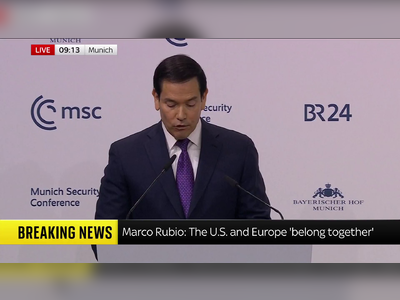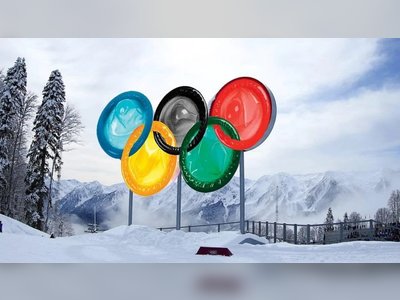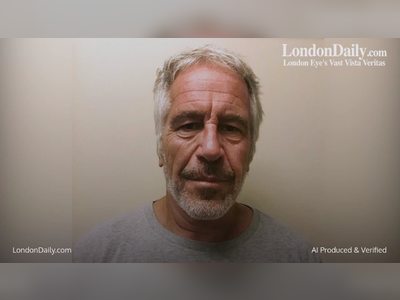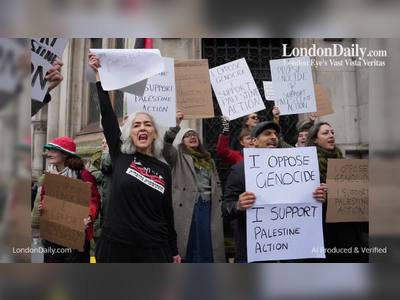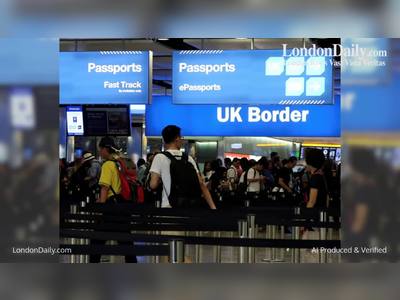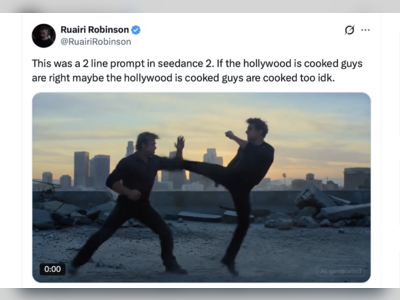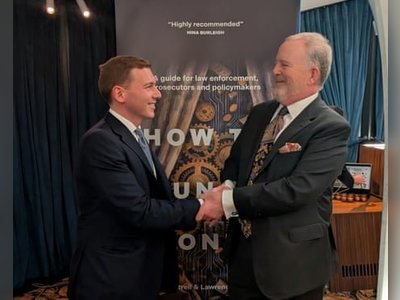
I Told Civil Rights Activists I Was Feeling Hopeless. They Responded: “Are You Kidding Me?”
I still think about a joke my white classmate made nearly 15 years ago.
We were sitting in my high school’s courtyard, and Mardi Gras, a holiday that divides my hometown of New Orleans, was approaching. During the city’s famous parades, rich and poor, Black and white, gather on the streets. But the nights leading up to Fat Tuesday are filled with glamorous balls that cleave the city along racial lines. Most Mardi Gras krewes integrated in the early 1990s after Dorothy Mae Taylor, a trailblazing Black politician, prohibited segregated krewes from parading. But to this day, two hold seemingly all-white balls.
The joke we all pretended to find funny was about my classmate bringing her Black boyfriend to one of them.
A big part of my job is dwelling on what has not changed in the five decades since civil rights legislation ostensibly leveled the playing field. I can reel the facts off: Black workers earn just 82.5 cents on the white dollar. White families are, on average, 10 times wealthier than Black families. The Black homeownership rate stands at about 40%, virtually unchanged since 1968. Meanwhile, the share of African Americans who are incarcerated almost tripled in that time, and currently stands at more than six times the white incarceration rate.
I joke that I don’t report and write about these issues because I think anything will change, but instead because I’d at least like to make people feel bad about the country’s widening racial chasm. But, like my classmate’s joke in high school, it reveals a profound hopelessness that I’ve felt even more in recent months. I, like many others in isolation during the coronavirus pandemic, have battled mental health issues, which have only been complicated by witnessing the nation’s racial reckoning and backlash alone in my apartment, feeling powerless.
So during some of the nation’s darkest days in recent history, I turned to three veterans of the civil rights movement for help: former president of Howard University Joyce Ann Ladner; Carlotta Walls LaNier, one of the Little Rock Nine; and Harry Edwards, who led a boycott of the 1968 Olympics. Being an activist, after all, is an inherently hopeful act, rooted in the belief that action can inspire change.
How do they remain hopeful as they’ve seen many of the laws they fought for — and even saw their peers die for — be watered down or dismantled?
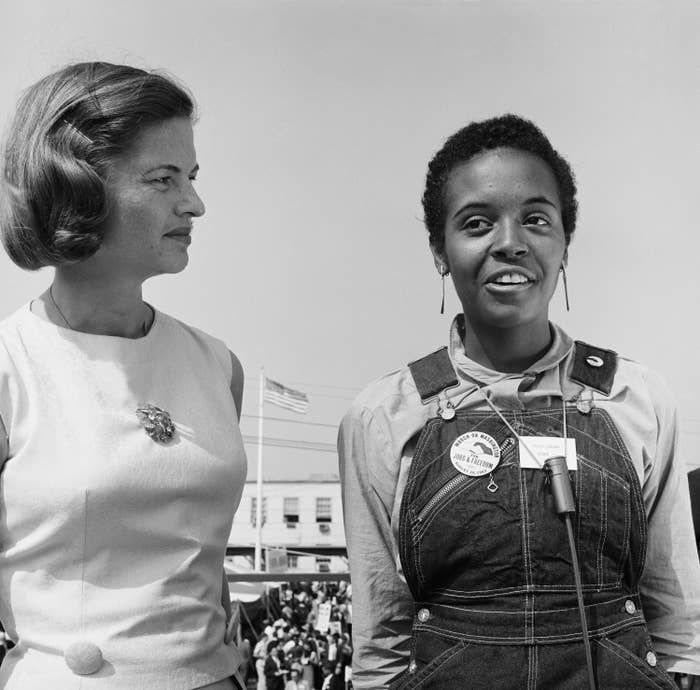 Joyce Ladner (right) during the March on Washington for Jobs and Freedom political rally in Washington, DC, Aug. 28, 1963.
Joyce Ladner (right) during the March on Washington for Jobs and Freedom political rally in Washington, DC, Aug. 28, 1963.
The first activist I reached was Ladner. Early on her mother instilled in her and her siblings growing up in Hattiesburg, Mississippi, during the Jim Crow era that “your dignity does not come from some white man, but your peers, the people in your community,” recalled Ladner, 76. After forming a youth chapter of the NAACP, Ladner and her sister Dorie were mentored by activists such as Vernon Dahmer and Medgar Evers, who were both later murdered by white supremacists.
When she arrived at Jackson State University at the age of 16, the NAACP was planning a “read-in,” to fight against segregated public libraries. The protest was risky — it was 1961 and this was going to be the first sit-in demonstration of any kind in Mississippi. Ladner begged to join in, but leaders denied her, because as a public school student she risked her place in college by protesting. Ladner, Dorie, and some of their classmates staged a brief sympathy prayer in front of the school’s library. Police arrived and beat protesters up. Ladner was expelled. She left Mississippi for graduate school, later becoming the interim president of Howard University.
As we were speaking, the news broke that no officers would be charged for killing Breonna Taylor. Ladner was clearly angry, but I pushed ahead with asking her: Are you still hopeful and why?
“I'm a perennial optimist,” Ladner told me. “But that's grounded in reality. I've also gone through dark hours, and I'm going through an especially hard one now, period.”
She is worried that Republicans, exemplified by Sen. Mitch McConnell’s hardball tactics with Supreme Court nominations, are using America’s institutions to install something resembling a white minority government, even as the country moves swiftly toward the day where no race comprises a majority of the population.
“The closer we get to that date,” Ladner said, “we're going to see more anger and more unreasonable methods being used by that small white minority who are determined that they will not be ousted from their positions.”
But, she assured me, the Black Lives Matter protests this summer showed the majority.
“And with my sociologist hat on, I’m particularly hopeful when I see working-class people are out protesting in very large numbers,” said Ladner. She took her 10-year-old grandson to a protest outside the White House on the same day Secret Service agents used tear gas to disperse crowds so Trump could take a photograph in front of St. John’s Church holding a Bible.
“I took him out there to instill in him that we have to continue to fight,” said Ladner. “We have to keep the fight any and all ways possible. Never, ever surrender. That's what my mother taught me, and I’m teaching him. You do not surrender.”
Growing up in New Orleans, I was surrounded by constant reminders of the legacy of slavery, Jim Crow, and segregation, even if my classmates and I were taught by our parents that it was best not to talk about race. Just months before that Mardi Gras joke, Hurricane Katrina had flooded 80% of the city but spared the whitest, richest neighborhoods that most of my classmates lived in, highlighting how segregationist policies had saved the highest land in this ever-sinking city for white people.
My progressive private high school was integrated more in name than in spirit, I was one of seven black students in a graduating class of about 125, in a city where African Americans made up over 60% of the population. My childhood home sits in Tremé, a neighborhood originally built by Black people who birthed many of the city’s musical and cultural traditions, but is now rapidly gentrifying. Nearby were Jeff Davis Parkway, Beauregard Avenue, and nearly two dozen other streets named for leading confederates.
And in the middle of downtown sat the city’s greatest public monument, a statue of Robert E. Lee atop a column, surrounded by a massive roundabout. Growing up we called it Lee Circle. City officials finally removed the statue of Lee after the shooting by a white supremacist at Emanuel African Methodist Episcopal Church. Today, only the column remains and my family just calls it Circle.
But the 1990s debates about what was politically correct robbed my generation of the ability to talk about race and instead encouraged us to embrace the idea of color blindness. On social media this summer, I saw my white childhood friends and classmates attempt to start grappling with race, seemingly for the first time. Posting black squares on Instagram and then immediately going back to their regularly scheduled posts of their babies or dinners. I want to believe that a new generation would be able to pick up the mantle of equality, as Ladner suggests, but the further we get from the age of explicitly racist policies, the more nuanced the conservations have to become.
Yet there are still few racially neutral spaces in this country to have those talks. Civil rights legislation assumed that half a century hence, there would no longer be as many explicitly white and Black spaces, be it neighborhoods, schools, or offices. But today, cities are as segregated as ever. Explicit and implicit racism in the housing market has turned once middle-class white neighborhoods in many cities into affluent fortresses. Even more than their parents, many of whom went through desegregation programs, white millennial and Gen Z Americans know little outside of their own segregated worlds.
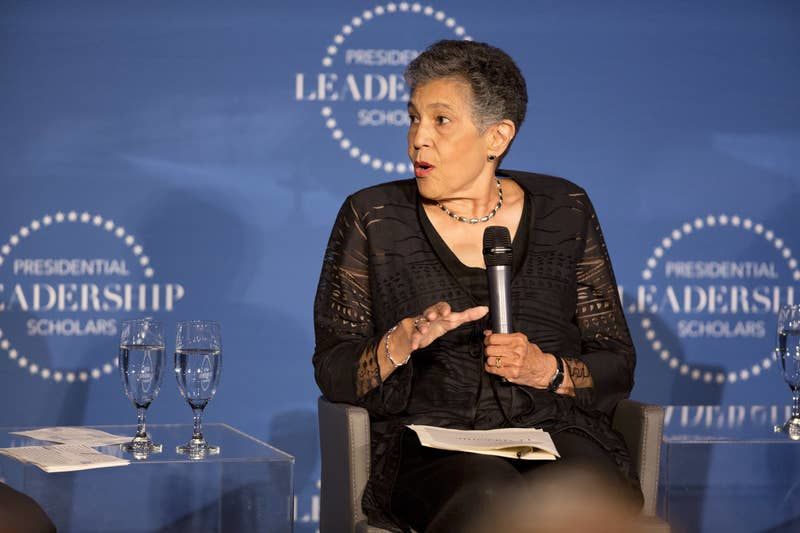 Carlotta Walls LaNier speaks during the Presidential Leadership Scholars
graduation at Little Rock Central High School in Arkansas, July 14,
2016.
Carlotta Walls LaNier speaks during the Presidential Leadership Scholars
graduation at Little Rock Central High School in Arkansas, July 14,
2016.
I was thinking again of high school when I reached out to activist Carlotta Walls LaNier. I first met her two years earlier at an education conference in her hometown of Little Rock, Arkansas. LaNier and some of the other members of the Little Rock Nine, the group of high school students who integrated Central High School in 1957 were keynote speakers. During their talk, one of her former classmates Ernest Green recalled a recent Central High School reunion. Those people who were spitting at me and cursing me out, he remembered, were now coming up to me with stories about how we were best friends in high school. For LaNier, the key to keeping the movement alive is not allowing white people to rewrite what she and others went through.
“We have to make sure we get the historical piece to our young people. They need to know history,” she told me.
She believes people must understand that equality has never been achieved. “These young people need to learn that we have never accomplished our goals,” said LaNier. “That we have never gotten to the finish line, and I don't see us doing so anytime soon — but that they are going to have to continue to keep this in the forefront. They can't sit back and think it's all done.”
LaNier was also worried about the future of the Voting Rights Act of 1965 but found solace in the faces of new protesters.
“When I saw that people stood up against what took place with George Floyd, Breonna Taylor, and all the others, I thought about Emmett Till, who was my generation’s Trayvon Martin,” she said. “When I see all of these people, and not just Black people but people of every race, stand up and demand that our government does the right thing, I can’t help but feel hopeful then. I have to, I have to hold on to something positive.”
But I’ve been left to wonder if all of those white faces in these protests have really done the work of reflecting and introspection we need them to do to be ready to change America’s racial hierarchy. A white friend told me a story recently. Returning home from a Black Lives Matter protest in Brooklyn this summer, he came across a group of young white women heading away from the protests too. When the group passed some Black women officers, they yelled “fuck the police” at them. All police were the same in these women’s eyes. I wonder if it even crossed their minds that those Black women had perhaps joined the NYPD to try to get just a little bit of the affluence that many white Brooklynites seem to take for granted.
The Black Lives Matter movement feels like just another chance to brand yourself on social media. I have seen a lot of young leftists post that the only difference between Democrats and Republicans on issues of policing is that Democrats want more Black police officers to do their bidding. I suspect that’s what those white women in Brooklyn were thinking. This argument loses some of the movement’s nuance, which is about more than overhauling the police and redirecting resources. The police are just a symptom of the more profound problem we have in this deeply segregated country. We are asking police to be on the front line to keep the peace in a divided nation and protect white people and their white fortress neighborhoods from the people of color to whom we’ve denied equal opportunities. In a reimagined world where Black lives matter, we have to find room for working-class Black women, like those police officers in Brooklyn, to have some kind of role in determining what is and isn’t good for their community.
During this summer, as I sat in my SoHo apartment in downtown Manhattan as luxury storefronts around it were smashed in protests, I did something I hoped I would never do: I felt nostalgic for pre-2016 America. That time had many of the problems we do today. Police were disproportionately killing Black people, and the widening income and wealth gaps facing Black people were actually worse. But in those days, I could use what privilege I had as a Black man with prestigious degrees and a little bit of intergenerational wealth to avoid confronting some of the ugliest aspects of American society.
When I moved to New York City in 2012, I first lived in my brother’s old rent-controlled studio on the Lower East Side. Two years later, when management finally worked out we were two different people, I had a chance to decide where in the city I would live. While many of my white media colleagues were moving to gentrifying historically Black neighborhoods like Bed-Stuy and Crown Heights, I opted for one of the city’s whitest and richest neighborhoods. I have come up with a lot of excuses for why — it is indeed convenient and located next to many of the city’s subway lines. But honestly, the reason I moved there was because, finally, I could choose to live in a neighborhood where police were a rare sight.
Just four years earlier, I was awoken by a SWAT team banging on my door. I had just moved back to New Orleans after graduating from college, into one of my dad’s rental properties in a gentrifying neighborhood. With guns drawn, the police demanded to speak with a man who I would later figure out was the boyfriend of the woman who had lived there before me. I tried to explain that I was the owner’s son and I had just moved in. I tried to get out the other parts of my bio that I hoped would keep me safe: I was a fellow at the Southern Poverty Law Center and I had just graduated from a prestigious school, whose name, in retrospect, a group of police officers probably wouldn’t know. I felt more powerless than I ever have, as they ransacked my apartment. My most vivid memory of that morning was after they left, I sat on my stoop alone and watched the sunrise, wondering just how close to death I had been.
A lot of my life since has revolved around avoiding the police.
SoHo sees itself as a bastion of liberalism. The white fortress neighborhood is the archetype of the kind of rich Democrat that both Republicans and Democratic Socialists love to despise. Last year, my zip code was ranked the eighth-most-expensive in the country, with the median home sale price sitting at $3,515,000. This election cycle over $7 million in political donations has flowed out of my zip code, nearly all to Democratic causes. But this is a neighborhood where few of my neighbors seem to be concerned or even acknowledge that we are living in a white affluent bubble.
While I have been able to avoid living in what can feel like a police state, SoHo comes with its own indignities. More than a few times, restaurant hosts and grocery store clerks have asked if I was there to pick up a Seamless or Instacart order. At the coffee shop I’ve gone to pretty much every day since 2014, every time there’s a new barista I have to explain, No, I’m not working on the weekend. I live in the neighborhood. Maybe the biggest sting was when I took a pair of Chelsea boots into my local cobbler to get them resoled. When I went to retrieve them, they couldn’t find my name in the system and the guy behind the counter asked if maybe I had put it under the name of the store where I worked. In his mind, a Black man in SoHo had to work at one of its retail shops. Finally he found me in the system. The cobbler had misentered my name when I left the shoes. He had dropped the T from my last name. Felton had become Felon.
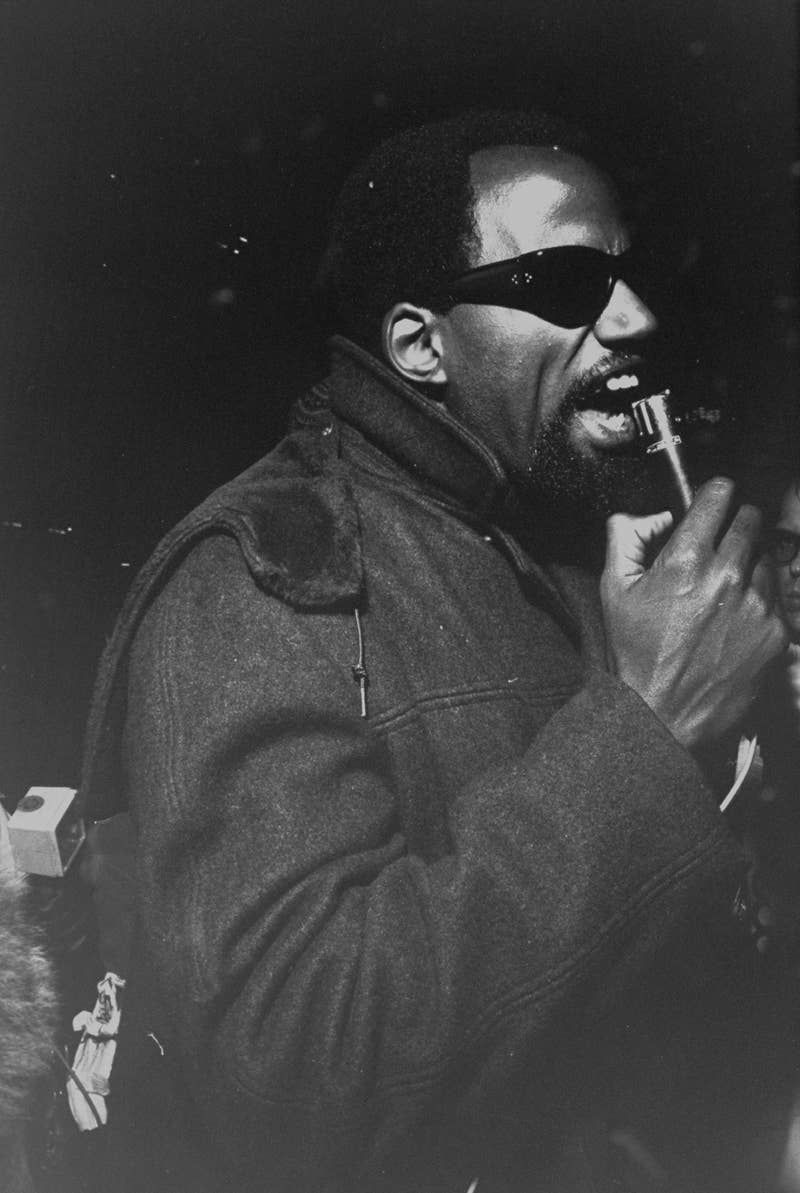 Harry Edwards, the main organizer of the Olympics boycott at Madison Square Garden rally in 1968.
Harry Edwards, the main organizer of the Olympics boycott at Madison Square Garden rally in 1968.
“There are no final victories,” activist and sociologist Harry Edwards, the final activist I reached out to for advice, told me. “Not only will we find there are always new battles, but some of the ground already won will have to be reconquered. So we're fighting voter suppression today, just like we fought for the right to vote in 1965. We're fighting social justice issues today, just like we fought for civil rights justice in 1964. All of this is part of this saga of human rights in American society. And this may be the greatest battle era yet since 1860, when Abraham Lincoln was elected to the White House.”
In the lead up to the 1968 Olympics in Mexico City, Edwards was the key architect of the Olympic Project for Human Rights, who advocated for a boycott of the games as a protest against racial segregation in the US and white minority rule in South Africa and Rhodesia. While the boycott largely failed to materialize, two of the group’s members, Tommie Smith and John Carlos, produced one of the most iconic images of the era. After winning gold and bronze in the 200 meters, Smith and Carlos stood on the Olympic podium, their fists raised in the air in a Black Power salute. The Olympic Project for Human Rights earned Edwards an FBI file thousands of pages long, but still Edwards says it was undoubtedly worth it.
“Look, we are the descendants of people who were in abject slavery, owned, raped, murdered, beaten, buried in unmarked graves,” Edwards told me. “Despite abject slavery of the most vicious, degenerate, immoral type, we stand taller, see further, and reach higher because we stand on the shoulders of giants, many of whom we will never know because they were enslaved over 250 years and buried in unmarked graves all over this country.”
He didn’t have patience for my hopelessness. “Frustration and despair? Are you kidding me?” he continued, sounding a bit exasperated. “They went through that and got us to this place... And we're going to cave in to despair, are you kidding me? No, we're made of better stuff than that.”
Edwards’s fundamental read of Black America’s 400-year-long history on this continent is that it has only been through periods of the greatest struggle and turmoil that society has advanced the cause of Black America.
“I'm extremely optimistic,” Edwards said. "Whether we're talking about the abolition movement, or the civil rights movement, which took more lives in America from the turn of the 20th century to Dr. King's assassination, than the terrorist attacks on September 11, we came out of all of these circumstances better.”
Edwards thinks the 2016 election capped a period from the 1990s through to President Barack Obama’s two terms in office, where people lost sight of a history that showed civil and human rights were won in times of strife. That rang true to me. On the morning after the first night that the protests turned into looting on May 31, I wanted to go out and see what SoHo’s streets looked like. But there was a problem. I couldn’t find my driver’s license, and I didn’t want to risk walking around streets filled with NYPD officers without proof that I lived there.
At that moment I was feeling nostalgic for a SoHo where I felt safe, a safety that came from the absence of other Black people. I wasn’t angry with the looters, but I felt vulnerable in a way I hadn’t before. My calculations around how to be safe and secure in America had been thrown off. I could no longer retreat to my neighborhood. That is a feeling I sit with now, and what pushes me forward — millions of other Americans also can’t look away this time. The movement had broken through to my white fortress neighborhood.
For the first time in my lifetime, it felt like the struggle over America’s deep racial divide was finally inescapable for the white people around me.
